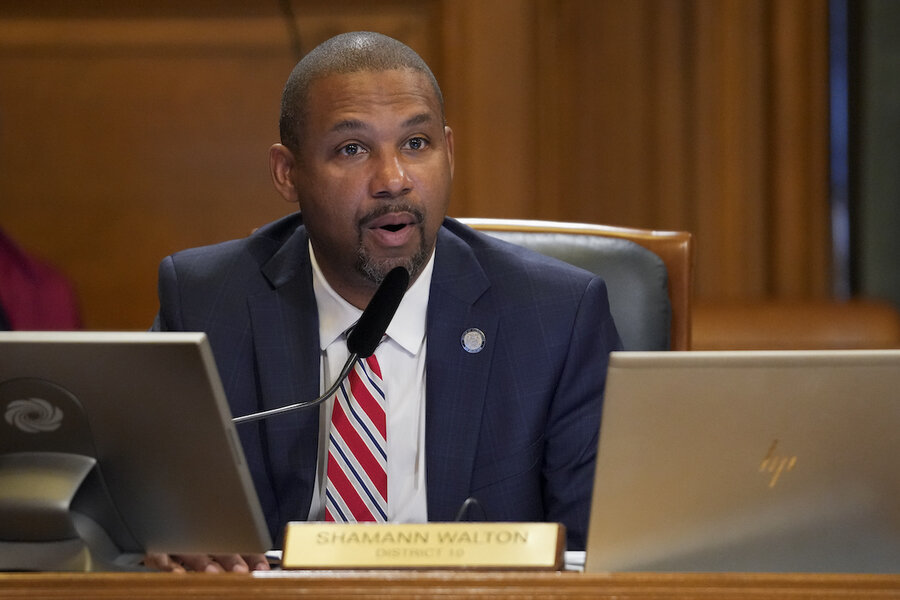San Francisco begins reparations with an apology. Is it enough?
Loading...
| San Francisco
Supervisors in San Francisco formally apologized Feb. 27 to African Americans and their descendants for the city’s role in perpetuating racism and discrimination, with several stating that this was just the start of reparations for Black residents and not the end.
The vote was unanimous with all 11 board members signed on as sponsors of the resolution.
“This historic resolution apologizes on behalf of San Francisco to the African American community and their descendants for decades of systemic and structural discrimination, targeted acts of violence, atrocities,” said Supervisor Shamann Walton, “as well as committing to the rectification and redress of past policies and misdeeds.”
San Francisco joins another major United States city, Boston, in issuing an apology. Nine states have formally apologized for slavery, according to the resolution.
“We have much more work to do but this apology most certainly is an important step,” said Mr. Walton, the only Black member of the board and chief proponent of the resolution.
It is the first reparations recommendation of more than 100 proposals made by a city committee to win approval. The African American Reparations Advisory Committee also proposed that every eligible Black adult receive a $5 million lump-sum cash payment and a guaranteed income of nearly $100,000 a year to remedy San Francisco’s deep racial wealth gap.
But there has been no action on those and other proposals, and some supervisors Feb. 27 took a dig at public safety measures on next week’s March 5 city ballot that they say would harm Black residents.
Supervisor Dean Preston represents the historically Black Fillmore neighborhood, which was razed in the last century and resulted in the displacement of residents. He said that some leaders who back the apology still want to build “unaffordable housing for mostly wealthy, white people” on public land.
He also referenced two measures backed by Mayor London Breed, who is Black, including one to screen welfare recipients for drug addiction and another to give more powers to the police department.
“People want an apology,” he said. “But they also want a commitment not to repeat harms.”
The mayor has also said she believes reparations should be handled at the national level, and facing a budget crunch, her administration eliminated $4 million for a proposed reparations office in cuts this year.
The resolution contains findings, including property redlining, the razing of the Fillmore neighborhood in the name of urban renewal, and intentional policies and practices by the city that robbed Black residents of opportunities to build generational wealth.
Black people, for example, make up 38% of San Francisco’s homeless population despite being less than 6% of the general population, according to a 2022 federal count. There are about 46,000 Black residents in San Francisco.
In 2020, California became the first state in the nation to create a task force on reparations. The state committee, which dissolved in 2023, also offered numerous policy recommendations, including methodologies to calculate cash payments to descendants of enslaved people.
But reparations bills introduced by the California Legislative Black Caucus this year also leave out financial redress, although the package includes proposals to compensate people whose land the government seized through eminent domain, create a state reparations agency, ban forced prison labor, and issue an apology.
Reparations advocates are urging San Francisco to move faster in adopting changes made by the city reparations committee, including policies to improve education, employment, and housing options for Black people.
Cheryl Thornton, a city employee who is Black, said that an apology alone does little to address current problems, such as shorter lifespans for Black people.
“That’s why reparations is important in health care,” she said. “And it’s just because of the lack of healthy food, the lack of access to medical care, and the lack of access to quality education.”
This story was reported by The Associated Press.







